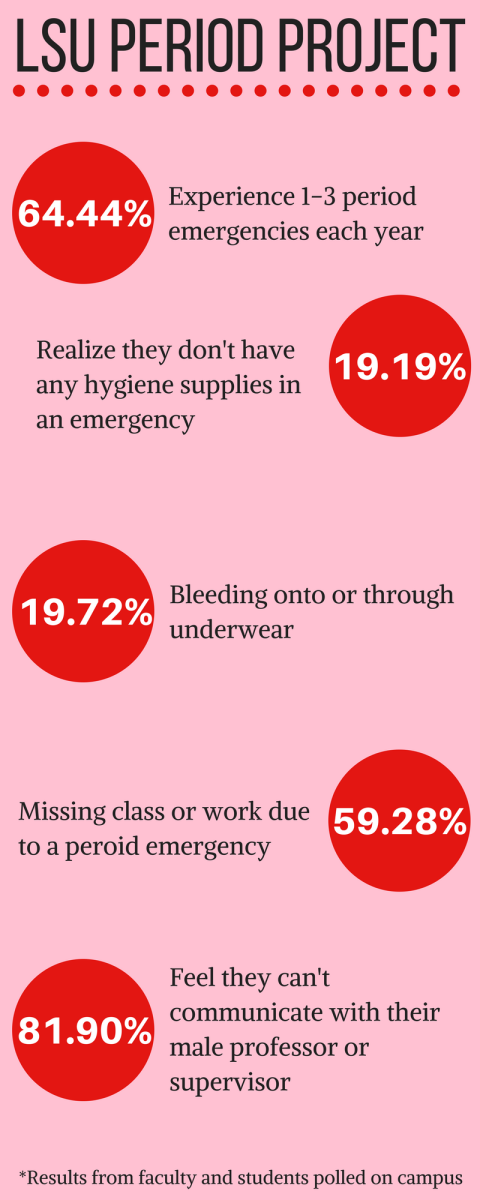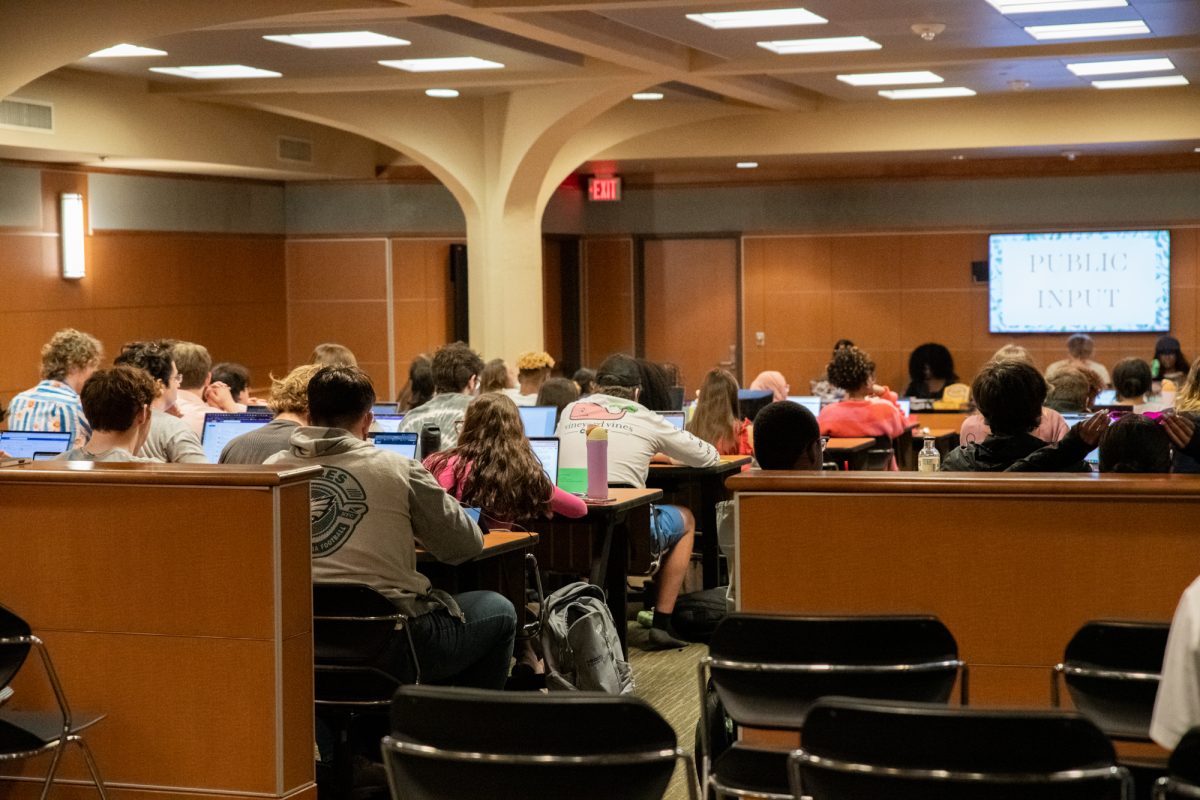Starting in the spring 2018 semester, members of the LSU Student Senate, in association with the University’s Women’s Center and the Minority Women’s Movement, will begin their Period Project, thanks to a bill passed Nov. 15 through Student Senate.
The financial bill, SGFB No. 7, allocates funds from Student Government Initiatives account to provide emergency feminine hygiene products around campus that are available to students.
“Even in Student Government, there’s been talk about trying to make tampons free on campus and all different types of stuff,” said College of Humanities and Social Sciences senator and co-author of the bill Sarah Perkins. “This is kind of a different form than that.”
Perkins said she met the director of the University’s Women’s Center Summer Steib over the summer, and informed her that she was a part of SG. She said she expressed her interest in using Student Senate to better the campus for women.
Steib created the idea for the Period Project, which was the brainchild of a committee composed of Perkins, the University’s Minority Women’s Movement president Kameryn Poullard, the Women’s Center graduate assistant, Graduate School senator and co-author of the bill Jordyn Warren, University College Center for Freshman Year senator and co-author of the bill Abigail Ezell and the Women’s Center research assistant Danielle Ford.
“[The committee wants] to reduce the stigma around periods,” Perkins said. “Nobody wants to talk about them out loud … It’s challenging for me too because I don’t talk about it, and that’s not good because we should be able to.”
According to the bill, $79.08 will be allocated from the Student Government Initiatives account toward purchasing 288 Tampax Pearl tampons and 288 Always Ultra Thin Regular Pads for the pilot program. Should the initiative be received well, this will only the first of many steps for the Period Project, Perkins said.
While the products will be available for students to use whenever needed, Perkins said the focus should be on using these products only for emergencies when there is no other option.
According to a survey created by the Period Project, 59.28 percent of the 221 students who took the survey said that they had to miss class or work because of a “period emergency.”
“We do want it to be free and, that being said, we’re not looking to get the most luxurious products,” Perkins said. “That sucks, I know, but this isn’t really supposed to be someone’s everyday thing.”
The Period Project will distribute the products from 10 locations across campus. The locations are not yet determined, Perkins said, but will be in administrative areas central to student activity.
During the debate on the Student Senate floor on Nov. 15, one senator questioned why SG could not just install dispensers in female restrooms where students could pay for and receive their products.
“There are students who menstruate and don’t consider themselves a girl,” Perkins said. “There are students who identify as every level of the spectrum … and still have a period. If you put them in female restrooms, then you run into the question of ‘Are you going to put them in male restrooms, too?’”
Perkins said there will be decals placed around campus directing students to offices that will distribute the products. Student workers at the Women’s Center will be working on keeping up with inventory during the pilot launch to test which methods of distribution within the various offices across campus work best.
“I don’t know if [Student Government] is going to do more with it,” Perkins said. “I would hope we will, but I know Minority Women’s Movement is going to be involved, the Women’s Center is going to stay really involved and I hope it gets bigger.”
SG joins the Women’s Center, Minority Women’s Movement to bring Period Project in 2018
By CJ Carver
November 22, 2017
Period Project
More to Discover










